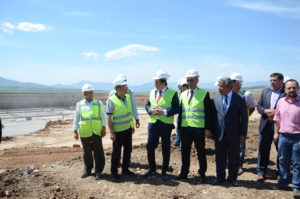
Capacity Building for the Alignment with the Acquis in the areas of Agriculture, Rural Development, Food Safety, Veterinary and Phytosanitary Policy
This project improves the planning, legislative, and institutional capacity of Serbia’s Ministry of Agriculture , Forestry and Water Management part of the country’s preparations for EU membership. Project supports Serbia in the EU accession process through the preparation of the Negotiation Positions and drafting or amending the national

Skills Development and Innovation Support Project
The labour market demands quick responses to changes in the market and the demographic situation. Within this scope, the assignment aimed to provide technical assistance to the Government of Macedonia and the Ministry of Education and Science (MOES) to reform the 4-year Secondary Technical and Vocational Education and

Technical Assistance for Promoting Social Inclusion in Densely Roma Populated Areas
It’s an obvious fact that there is a need to increase social inclusion in heavily populated areas, particularly in Rome, mainly by facilitating their entrance into the formal labour market. Within this context, the project aimed to support Rome’s population by improving the quality of education delivery, vocational

Improvement of Legislation, Control and Awareness in Food Safety, Animal Health and Welfare in Ukraine
The project aims to support the implementation of the Association Agreement’s provisions between the EU and Ukraine concerning food safety, animal health, and welfare.

Technical Assistance and Supervision for Kahramanmaraş Water and Wastewater Project
The quality of the drinking water and its consumption is one of the most critical topics for the European Union and the whole world. Based on this context, the programme aimed to accelerate Turkey’s accession to the EU by enabling Turkey to achieve a high level of environmental

Enhancing the Employability of Youth and Unemployed/Low-Skilled Workers, and Improving Their Transition to Employment In Egypt
It can be claimed that advancing the structure and performance of the TVET (Technical and Vocational Education and Training) system and TVET deliveries is essential to better respond to new socio-economic needs, in particular, youth employability and increased competitiveness in the context of the country’s current and future

